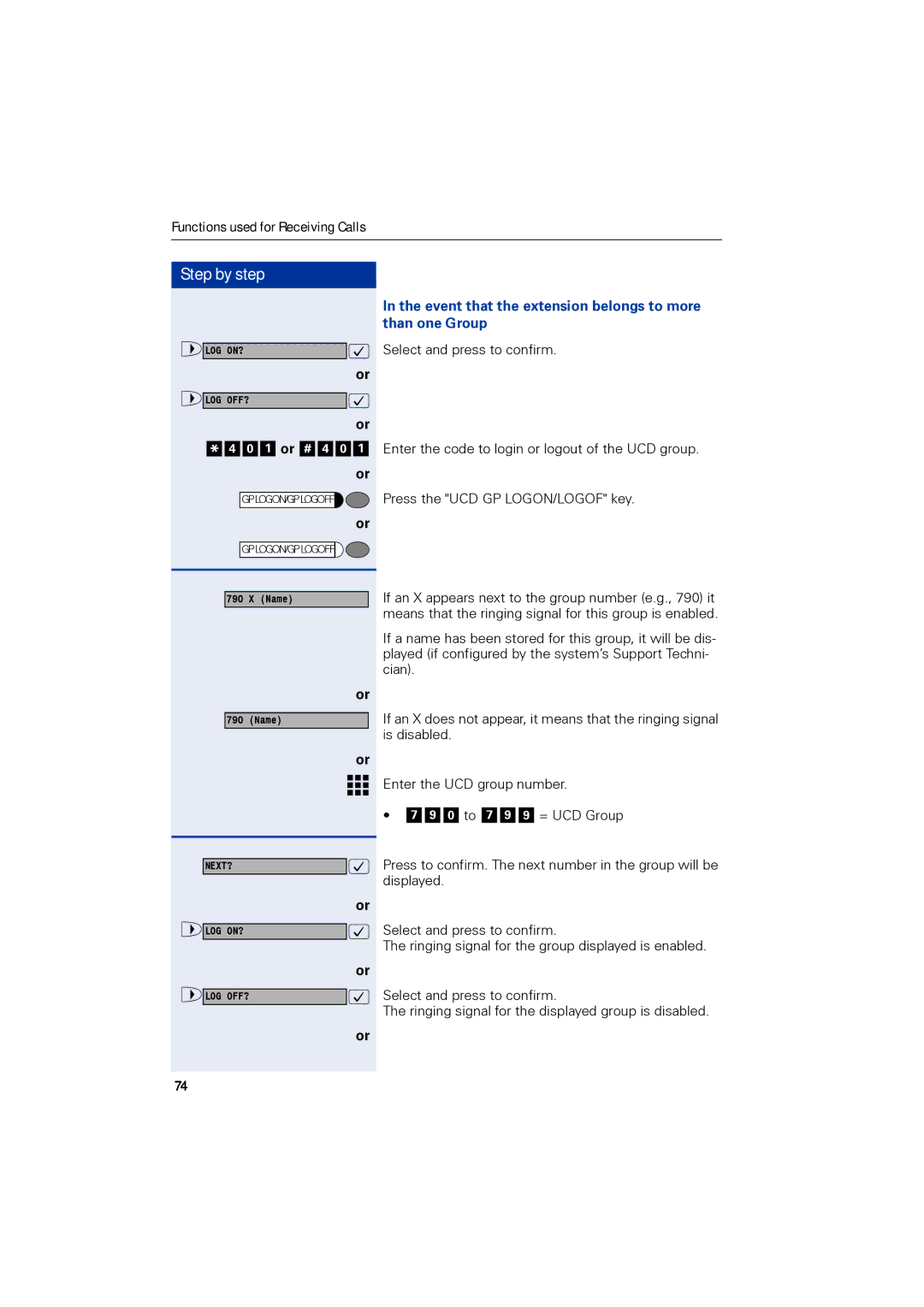
Functions used for Receiving Calls
Step by step |
|
|
|
|
>LOG ON? |
|
|
| : |
|
|
|
| or |
>LOG OFF? |
|
|
| : |
|
|
|
| or |
* 4 0 1 or | # | 4 | 0 | 1 |
|
|
|
| or |
GPLOGON/GPLOGOFF |
|
| ||
|
|
|
| or |
GPLOGON/GPLOGOFF |
|
| ||
790 X (Name) |
|
|
|
|
|
|
|
| or |
790 (Name) |
|
|
|
|
|
|
|
| or |
NEXT? |
|
|
| : |
|
|
|
| or |
>LOG ON? |
|
|
| : |
|
|
|
| or |
>LOG OFF? |
|
|
| : |
|
|
|
| or |
74 |
|
|
|
|
In the event that the extension belongs to more than one Group
Select and press to confirm.
Enter the code to login or logout of the UCD group.
Press the "UCD GP LOGON/LOGOF" key.
If an X appears next to the group number (e.g., 790) it means that the ringing signal for this group is enabled.
If a name has been stored for this group, it will be dis- played (if configured by the system’s Support Techni- cian).
If an X does not appear, it means that the ringing signal is disabled.
Enter the UCD group number.
•![]()
![]()
![]() to
to ![]()
![]()
![]() = UCD Group
= UCD Group
Press to confirm. The next number in the group will be displayed.
Select and press to confirm.
The ringing signal for the group displayed is enabled.
Select and press to confirm.
The ringing signal for the displayed group is disabled.
